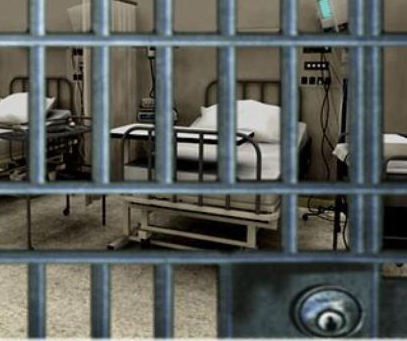Strasbourg, 27.01.2015 – The Council of Europe’s Committee for the Prevention of Torture and Inhuman or Degrading Treatment or Punishment (CPT) published today its reports on the last two ad hoc visits to Armenia, carried out in April 2013 and May 2014, together with the responses of the Armenian authorities.
During the April 2013 visit, the CPT’s delegation received a significant number of allegations from detained persons that they had been subjected to physical or psychological ill-treatment and/or excessive use of force by police officers. The alleged physical ill-treatment consisted in the main of punches, kicks, or inappropriate use of batons, at the time of apprehension or during subsequent questioning (in particular by operational police officers). In addition, a number of allegations were received of threats of physical ill-treatment and of repercussions for family members. In several cases, the ill-treatment alleged was of such a severity that it could be considered to amount to torture (e.g. extensive beatings; infliction of electric shocks; simulated asphyxiation with a gas mask; blows to the soles of the feet). In a number of cases, the medical examination of the persons concerned and/or the consultation of medical files by the delegation revealed injuries which were consistent with the allegations of ill-treatment made.
In their response, the Armenian authorities indicate that new guidelines have been issued and that the training of police officers has been enhanced to prevent instances of police ill-treatment.
In the report, the CPT acknowledges the efforts made by the Armenian authorities to improve the system of handling potential cases of police ill-treatment and welcomes the creation of the Special Investigation Service (SIS) as an independent investigative body. However, the examination of relevant documentation, including investigation files concerning complaints about police ill-treatment, revealed a number of flaws in the current system which clearly undermined the effectiveness of any action taken to detect and investigate such cases. The CPT makes a number of specific recommendations to improve the existing procedures for the reporting of injuries and the processing of potential cases of police ill-treatment by prosecutors.
Read also
The CPT’s delegation also carried out a target visit to Yerevan-Kentron Prison, in order to examine the conditions under which life-sentenced prisoners were being held in the establishment. In the report, the CPT expresses serious concern that hardly any of the specific recommendations made after previous visits have been implemented as regards the situation of two life-sentenced prisoners who had been continuously held in solitary confinement for 13 years, without being offered any out-of-cell activity other than outdoor exercise for one hour per day. The Committee emphasises that the conditions under which the two prisoners were being held could be considered as amounting to inhuman and degrading treatment, bearing also in mind that neither of them was being provided with adequate psychiatric treatment, even though they both suffered from severe mental disorders.
The main objective of the May 2014 visit was to review the situation of life-sentenced prisoners in the country. For this purpose, the CPT’s delegation visited Nubarashen and KentronPrisons in Yerevan.
In both establishments, the delegation received hardly any allegation of physical ill-treatment from prisoners.
However, the visit brought to light that many of the specific recommendations previously made by the Committee had not been (fully) implemented in practice, in particular, as regards the detention regime of life-sentenced prisoners, restrictions on prisoners’ contact with the outside world and the systematic use of handcuffs.
As regards, more specifically, the situation of the two above-mentioned life-sentenced prisoners at Kentron Prison, certain improvements were observed in terms of psychiatric care. However, the situation had remained by and large unchanged since the 2013 visit with regard to their detention regime.
On the other hand, the CPT appreciates all the measures taken by the Armenian authorities after the 2014 visit with a view to putting an end to the solitary confinement of the two above-mentioned prisoners and providing them with adequate treatment and care. The Committee also welcomes the initiative of the Armenian authorities to amend the Penitentiary Code in order to abolish the legal obligation of segregating life-sentenced prisoners from other prisoners.
In their response, the Armenian authorities provide further information on the draft legislation which is intended to significantly improve the situation of life-sentenced prisoners and to facilitate the granting of conditional release for them. In addition, the authorities indicate that additional steps have been taken to provide the two above-mentioned prisoners with adequate health care and more out-of-cell activities.
The visit reports and related Government responses have been made public at the request of the Armenian authorities and are available on the CPT’s website.

























































